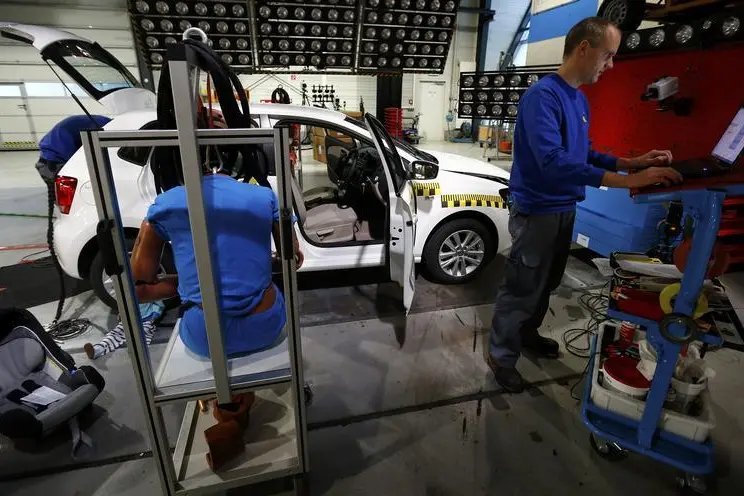PHOTO
The automotive industry is a key pillar of the global economy, a main driver of macroeconomic growth and technological advancement in developing and developed countries.
The value chain for the automotive industry is wide and covers many other adjacent industries and, hence, creates a multiplier effect much higher than any other industry.
Saudi Arabia is considered one of the largest automotive markets in the Middle East. Moreover, the addition of 3 million women drivers to the automotive market by 2020 will open a host of incremental opportunities for investors and industry participants, ranging from car sales to motor insurance, vehicle leasing and driving schools.
The government is seeking to develop a domestic automotive industry and has encouraged global vehicle manufacturers to establish local operations, in an effort to create jobs for the country’s growing youth population and facilitate the transfer of technology and skills.
Saudi Arabia is currently developing a car manufacturing city and working to incentivize investors to inject money into the industry. The Kingdom will also provide the required raw materials including aluminum, rubber, plastics and others at competitive prices. The Auto Cluster aims to attract Saudi and foreign investment, increase exports, provide job opportunities, and contribute to economic diversification as part of its 2030 Vision reform plan.
Saudi Arabia already has more than 8 million passenger vehicles in operation, and this will increase significantly in the coming years, with potentially 9 million new drivers added to the roads.
Saudi automotive dealers will be the first to benefit, along with banks and insurance companies that finance and underwrite new car purchases. Furthermore, the aftermarket comes next, when these additional cars require regular repair and maintenance, replacement parts, tires, batteries, accessories, car care and grooming.
According to Messe Frankfurt Middle East, Saudi Arabia is already the Gulf region’s largest auto aftermarket, with revenues from tires, batteries, lubricants and engine components and accessories valued at more than $7.1 billion in 2017. Early estimates had projected the market to be worth $8.9 billion by 2021.
However, with the recent decree allowing women to drive this year, the figure will likely be much higher.
In spite of the temporary sales decline which has affected most Saudi luxury dealers, I believe that the Kingdom’s automotive sector is set for a rapid transformation in the coming years. Not only will the affordable mass market brands witness sales growth, but the 3 million female drivers expected to be added to the Kingdom’s roads by 2020 will also contribute.
Basil M.K. Al-Ghalayini is the Chairman and CEO of BMG Financial Group.
Copyright: Arab News © 2019 All rights reserved. Provided by SyndiGate Media Inc. (Syndigate.info).





















